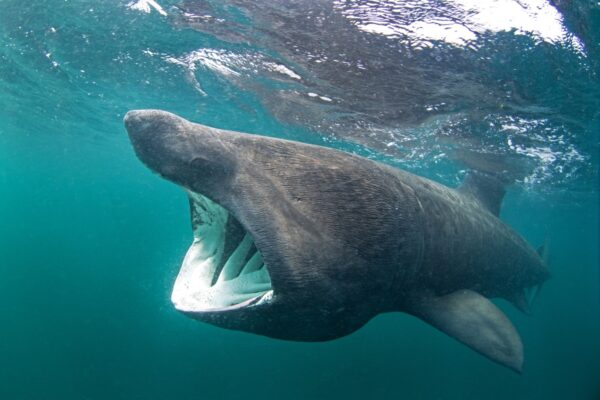A new report sheds light on the future impacts of climate change on marine species across the United Kingdom. Focussing on 21 marine species listed as ‘threatened’ or ‘declining’, ranging from sharks and rays to seahorses and oysters, predictive models were used to forecast the impacts of climate change on ‘habitat suitability’.
Factors such as sea temperature, salinity, and seabed sediment type were used to assess whether climate change would lead to an ‘increase’ or ‘decrease’ in the amount of suitable habitat available around the UK over the coming century.
There was found to be an increase in suitable habitat for species such as seahorses, basking shark, undulate ray, and native oyster. However, suitable habitat for ocean quahog and fan mussel showed a significant decrease.
The study aims to help policymakers and conservationists understand which UK species will be most vulnerable to the future impacts of climate change and human pressures.
It is one of the first studies to analyse the potential impacts of climate change on habitats of important and vulnerable conservation species in UK waters.
The research found that:
- Of the 21 species studied, the majority showed an overall increase in suitable habitat by the end of the century with many species projected to shift northwards over the next 50 years. However, the picture varies for specific locations, with increases of certain species in some areas but decreases in others.
- Overall, there was an increase in suitable habitat for species such as seahorses, basking shark, undulate ray, and native oyster, while suitable habitat for ocean quahog, sea fan, and fan mussel showed a significant decrease.
- Those species distributed around the central and northern North Sea, such as the native oyster, were more likely to experience an increase in suitable habitat. Species found in the south and west of the UK, and southern North Sea, such as the sea fan and ocean quahog, showed a decline in suitable habitat.
Assessments by the UK Marine Climate Change Impacts Partnership (MCCIP) Programme, project that sea water temperatures in the UK will increase between 0.25°C and 0.4°C per decade in the future.
Understanding how species may shift their distributions within and beyond UK waters will be crucial for informing future management and conservation efforts, and deciding where adaptation measures might be best targeted.
Seahorses projected to experience a 100% increase in suitable conditions
The study suggests that if undisturbed by human activities, some marine species may be relatively resilient to climate change and take advantage of new habitats becoming available. Seahorses, for example, which are generally found in Mediterranean waters, are projected to experience a 100% increase in suitable conditions by the end of the century due to warming seas around the UK. Some species of seahorse, normally found only on the south coast, have already been observed in the central North Sea and the west of British Isles.
By contrast, the habitat of sea pens – a type of soft coral typically found at the bottom of the ocean in cooler waters – is projected to shrink by around 40% by the end of the century.
For species facing a decline in suitable habitat, the study highlights the need to ensure ‘habitat connectivity’, such as through marine protected areas or habitat corridors to allow species to move through the marine environment.
Bryony Townhill, Marine Climate Change Scientist and lead author said: “Our study suggests that for some species, substantial changes in suitable habitat may take place in the next 20 years, so it’s important we continue to monitor where these changes are happening, and ensure that we protect and manage our marine environment so that species can continue to thrive.”
The report has been published by the UK’s Centre for Environment, Fisheries and Aquaculture Science (CEFAS), supported by the Joint Nature Conservation Committee (JNCC) and funded by the Department for Environment, Food & Rural Affairs (DEFRA).
The full report, Investigating Climate Change Resilience of Vulnerable Marine Species around the UK, can be read here.
